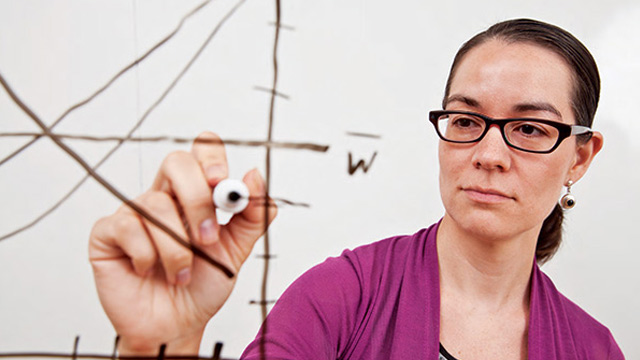Probing the ROI of Private College: A New Study by TC's Judith Scott-Clayton

Time.com's Money site reports on a new study by TC's Judith Scott-Clayton which finds that graduates of public colleges and universities generally had better luck finding jobs and graduated with less debt than graduates of private institutions.
Scott-Clayton's study, "Early Labor Market and Debt Outcomes for Bachelor’s Degree Recipients: Heterogeneity by Institution Type and Major, and Trends Over Time," published in July by TC's Center for Analysis of Post-Secondary Education and Employment (CAPSEE), looked at bachelor's degree recipients in 1993 and 2008, and examined how well they had fared in the labor market and their level of debt four years after graduation.
According to the article, Scott-Clayton, an associate professor of economics and education in TC's Department of Education Policy and Social Analysis (EPSA), found that the typical college graduate fares well after college in terms of earnings and debt management. And the study found that, while "borrowing rates and debt loads have increased substantially over time," they "are nonetheless manageable for the vast majority of graduates," Money reports.
However, while private institutions often outperform their public counterparts on other measures, such as graduation rates, Scott-Clayton found that graduates of public universities often do better in the job market than their peers from private colleges and universities.
“You can’t assume that private institutions are always automatically better just because they are private or expensive. It is important to ask questions about both graduation rates and post-college outcomes,” she is quoted as saying. "Students’ choices about where to attend and what to study have only become more consequential over time."
CAPSEE is part of the Community College Research Center (CCRC) at Teachers College, the leading independent authority on two-year colleges in the United States, where Scott-Clayton is a senior research associate and a nationally recognized expert on financial aid policy and research.
Funded by the U.S. Department of Education’s Institute of Education Sciences, CAPSEE seeks to identify policies that improve completion rates along pathways leading to strong economic returns and investigates the labor market outcomes of post-secondary pathways. It is comprised of researchers from CCRC, University of Michigan, Harvard, Stanford, and University of North Carolina.
To read the complete article, click here.
Related Articles
How Free College Can Affect You Later in Life (MarketWatch)
Published Wednesday, Aug 31, 2016